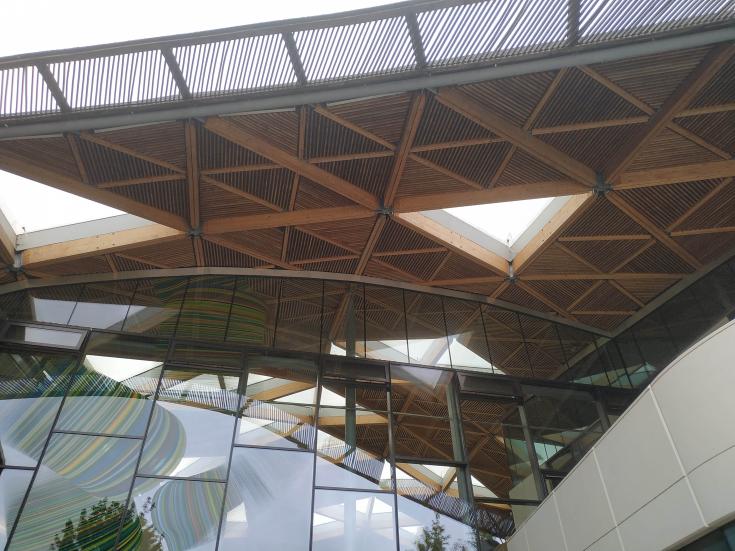Emergency grants for micro and small businesses

The role of the public sector in supporting local businesses is always important for the development objectives and well-being of a territory, and it becomes essential in times of crises.
In many cases, local and regional authorities have demonstrated their capacity to promptly react to economic development challenges and provide support to companies in need. The way public authorities have responded to the crisis brought on by the COVID-19 pandemic is an enlightening example.
Many regions set up emergency response measures, e.g. grants, vouchers, tax exemptions, e-commerce platforms, etc. to alleviate the impact of the economic activity disruptions.
Such measures can be an important source of inspiration for decision-making, both in support of current economic developments and for possible future worldwide challenges that have an immediate impact on the ground.
Capital grants for micro and small enterprises in Rzeszow, Poland
At the outburst of the COVID-19 pandemic, in Podkarpackie, Southeast Poland, local businesses started to suffer drops in sales and revenues. The regional government, in collaboration with local stakeholders, found a way to set up a successful non-refundable grant for micro and small enterprises.
The goal was to enable businesses to keep financial liquidity for maintaining business activity. More concretely, it was addressed to companies having experienced a decrease in turnover by at least 30% in any month after 1 February 2020 compared to the previous year due to disruptions in the functioning of the economy due to COVID-19.
Only enterprises that had their headquarters in the Podkarpackie Region could apply for the grant. The savings from various priorities and calls of the 2014-2020 Regional Operational Programme were used to set up the grant. The total budget for the emergency measure was 8.8 million Euros (40 million PLN).
Tourism and tourism-related industries, as the most heavily disrupted sector, were specifically supported with 30% of the funds allocated to them. The maximum grant size was 250,000 Euros. Over 13 thousand applications from businesses were received, demonstrating the strong interest of the private sector for such support. 1002 companies were supported, of which 264 belonged to the tourism industry.
As a follow-up, the Action Plan for the Podkarpackie Region was set out to measure the results of the instrument.
The evaluation showed that over 30% of the companies that received grants indicated that thanks to them they did not close their business and were able to survive the hard time associated with the COVID-19 pandemic.
The benefit of interregional cooperation
The exchanges with the partners of FOUNDATION were a source of great inspiration for the Regional Development Agency, also involved in the project. The project started out with the goal of building regional resilience to industrial structural change.
As the project began in August 2019, just a few months before the pandemic began and reached Europe, the project had to pivot quickly to tap into the preexisting knowledge of ensuring economic resilience in order to find responses to the very real and sudden shock on the local economies.
In Rzeszow, Poland, at the outbreak of the coronavirus pandemic, the problems of SMEs identified during local stakeholder meetings of the FOUNDATION project in the Podkarpackie Region and the good practices from other project partners related to supporting entrepreneurs in crisis, revealed the necessity to modify and adapt the Regional Operational Program (ROP) of the Podkarpackie Voivodeship 2014-2020.
The progress of the grant implementation and what could possibly be improved in the future were discussed multiple times with local stakeholders.
In Marek’s words: “Project support demonstrated the need to anticipate actions related to the economic resilience of regions. In the previous 2014-2020 perspective, the original version of the Podkarpackie ROP did not include this type of support. In the current 2021-2027 perspective, this type of support has already been provided for under the European Funds for Podkarpacie 2021-2027 Programme, Priority VII. Human capital ready for changes, Measure 7.7 Support for adaptation and modernization processes of employees and entrepreneurs.”
Learning from past experiences to better face the future
The effects of the COVID crisis are still affecting the local economy and public authorities are still in need of exchange on 'crises responses'. This is visible from a number of new Interreg Europe projects that focus on the COVID-19 recovery:
- CHERRY works to support the resilience of CCI
- TIB focuses on the task of rebuilding the tourism sector after COVID
- RuralYouthFuture seeks to improve youth employment policies
- MICROFUTURE aims to ensure that the learnings from COVID-19 are taken into account to future-proof microfinance provision
The COVID-19 and Podkarpackie experience has clearly shown that it is important for policymakers to take steps that will enable entrepreneurs to run and keep their activity alive when facing a serious crisis. This experience can positively feed into the exchanges for new partnerships and enrich the cooperation results.
Other resources
- Explore other COVID-19 related good practices
- Learn more from online discussion's key learnings on the rural SMEs in the COVID-19 context

